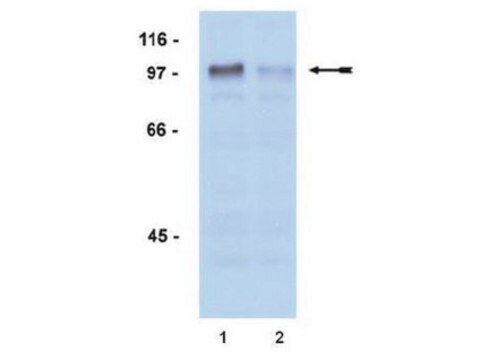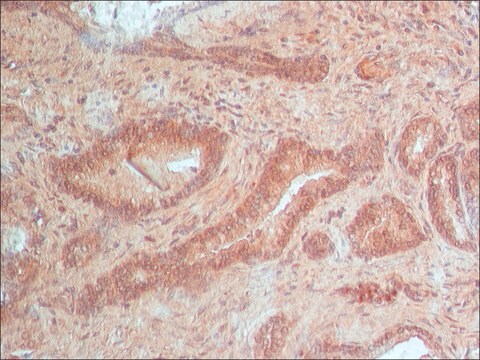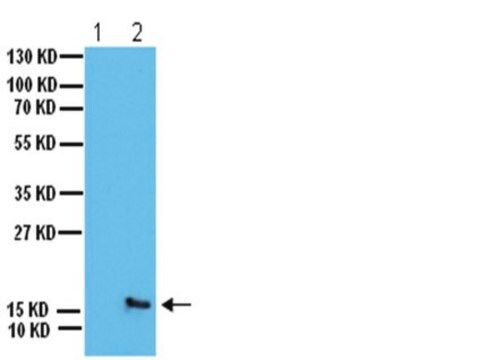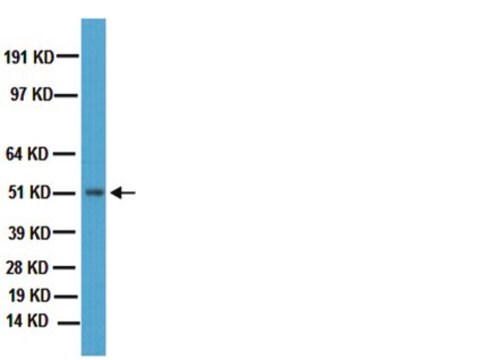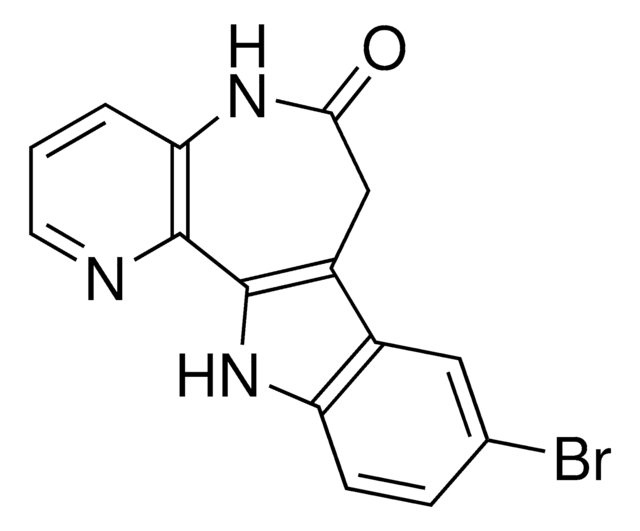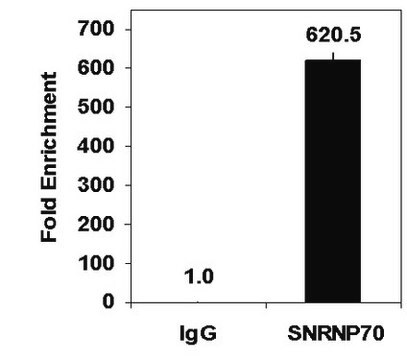07-1375
Anti-phospho-Androgen Receptor (Ser81) Antibody
Upstate®, from rabbit
Synonyme(s) :
Anti-AIS, Anti-AR8, Anti-DHTR, Anti-HUMARA, Anti-HYSP1, Anti-KD, Anti-NR3C4, Anti-SBMA, Anti-SMAX1, Anti-TFM
About This Item
Produits recommandés
Source biologique
rabbit
Niveau de qualité
Forme d'anticorps
affinity isolated antibody
Type de produit anticorps
primary antibodies
Clone
polyclonal
Produit purifié par
affinity chromatography
Espèces réactives
human
Réactivité de l'espèce (prédite par homologie)
dog (expected based only 1 amino acid difference), horse (expected based only 1 amino acid difference), primate (expected based only 1 amino acid difference), bovine (expected based only 1 amino acid difference)
Fabricant/nom de marque
Upstate®
Technique(s)
western blot: suitable
Numéro d'accès NCBI
Numéro d'accès UniProt
Conditions d'expédition
wet ice
Modification post-traductionnelle de la cible
phosphorylation (pSer81)
Informations sur le gène
bovine ... Ar(280675)
dog ... Ar(403588)
human ... AR(367)
Description générale
Spécificité
Immunogène
Application
Signaling
Epigenetics & Nuclear Function
Transcription Factors
Qualité
Description de la cible
Forme physique
Stockage et stabilité
Handling Recommendations: Upon receipt, and prior to removing the cap, centrifuge the vial and gently mix the solution. Avoid repeated freeze/thaw cycles, which may damage IgG and affect product performance.
Remarque sur l'analyse
R1881 (methyltrienolone) treated LNCap lysates
Informations légales
Clause de non-responsabilité
Not finding the right product?
Try our Outil de sélection de produits.
Code de la classe de stockage
12 - Non Combustible Liquids
Classe de danger pour l'eau (WGK)
WGK 1
Point d'éclair (°F)
Not applicable
Point d'éclair (°C)
Not applicable
Certificats d'analyse (COA)
Recherchez un Certificats d'analyse (COA) en saisissant le numéro de lot du produit. Les numéros de lot figurent sur l'étiquette du produit après les mots "Lot" ou "Batch".
Déjà en possession de ce produit ?
Retrouvez la documentation relative aux produits que vous avez récemment achetés dans la Bibliothèque de documents.
Notre équipe de scientifiques dispose d'une expérience dans tous les secteurs de la recherche, notamment en sciences de la vie, science des matériaux, synthèse chimique, chromatographie, analyse et dans de nombreux autres domaines..
Contacter notre Service technique